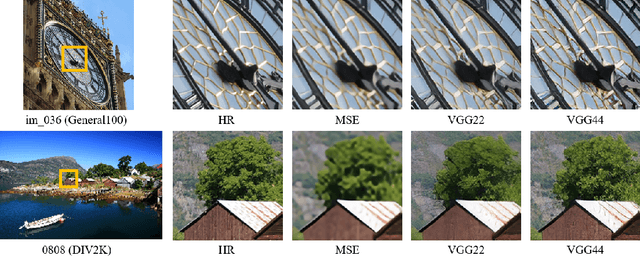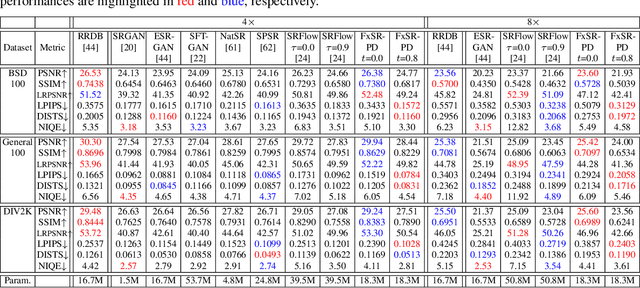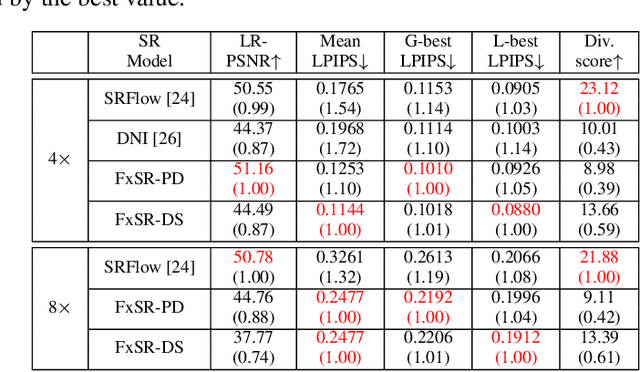Young Su Moon
Perception-Oriented Single Image Super-Resolution using Optimal Objective Estimation
Nov 28, 2022Abstract:Single-image super-resolution (SISR) networks trained with perceptual and adversarial losses provide high-contrast outputs compared to those of networks trained with distortion-oriented losses, such as L1 or L2. However, it has been shown that using a single perceptual loss is insufficient for accurately restoring locally varying diverse shapes in images, often generating undesirable artifacts or unnatural details. For this reason, combinations of various losses, such as perceptual, adversarial, and distortion losses, have been attempted, yet it remains challenging to find optimal combinations. Hence, in this paper, we propose a new SISR framework that applies optimal objectives for each region to generate plausible results in overall areas of high-resolution outputs. Specifically, the framework comprises two models: a predictive model that infers an optimal objective map for a given low-resolution (LR) input and a generative model that applies a target objective map to produce the corresponding SR output. The generative model is trained over our proposed objective trajectory representing a set of essential objectives, which enables the single network to learn various SR results corresponding to combined losses on the trajectory. The predictive model is trained using pairs of LR images and corresponding optimal objective maps searched from the objective trajectory. Experimental results on five benchmarks show that the proposed method outperforms state-of-the-art perception-driven SR methods in LPIPS, DISTS, PSNR, and SSIM metrics. The visual results also demonstrate the superiority of our method in perception-oriented reconstruction. The code and models are available at https://github.com/seungho-snu/SROOE.
Flexible Style Image Super-Resolution using Conditional Objective
Jan 18, 2022



Abstract:Recent studies have significantly enhanced the performance of single-image super-resolution (SR) using convolutional neural networks (CNNs). While there can be many high-resolution (HR) solutions for a given input, most existing CNN-based methods do not explore alternative solutions during the inference. A typical approach to obtaining alternative SR results is to train multiple SR models with different loss weightings and exploit the combination of these models. Instead of using multiple models, we present a more efficient method to train a single adjustable SR model on various combinations of losses by taking advantage of multi-task learning. Specifically, we optimize an SR model with a conditional objective during training, where the objective is a weighted sum of multiple perceptual losses at different feature levels. The weights vary according to given conditions, and the set of weights is defined as a style controller. Also, we present an architecture appropriate for this training scheme, which is the Residual-in-Residual Dense Block equipped with spatial feature transformation layers. At the inference phase, our trained model can generate locally different outputs conditioned on the style control map. Extensive experiments show that the proposed SR model produces various desirable reconstructions without artifacts and yields comparable quantitative performance to state-of-the-art SR methods.
 Add to Chrome
Add to Chrome Add to Firefox
Add to Firefox Add to Edge
Add to Edge